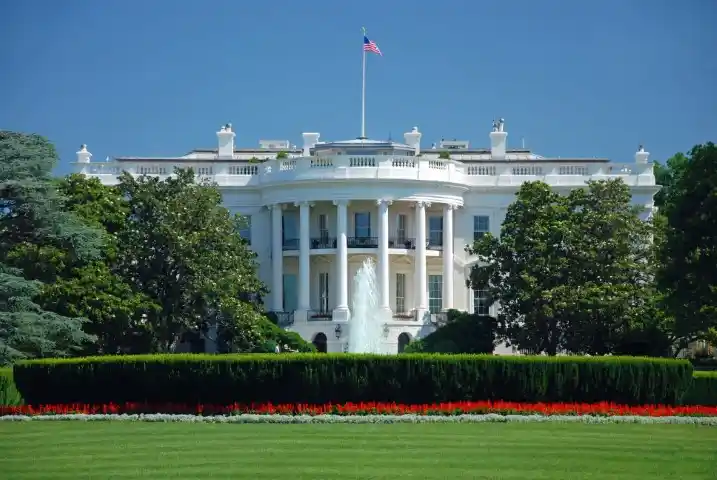As U.S. trade policy tightens, pharmaceutical and biotech companies face a pivotal strategic question: does it now make financial sense to manufacture in America?
In 2025, the Trump administration revived aggressive trade measures, announcing tariffs of 15 %, 25 %, and up to 100 % on imported branded pharmaceuticals from regions such as the EU and China1,2. Officials confirmed that companies building their pharmaceutical manufacturing plant in America would be exempt from the 100% tariff3, a clear incentive to localize manufacturing. President Trump’s message was explicit: “We want pharmaceuticals made in our country.”4
For an industry long built on global supply chains, this marks a turning point. After decades of zero-tariff trade, imported medicines could soon face taxes that radically reshape margins. Even with EU and Japan negotiating 15 % caps1,5, many manufacturers remain exposed to full-rate duties. Meanwhile, a proposed Most-Favored-Nation (MFN) pricing rule, linking U.S. prices to the lowest paid abroad, adds further pressure on profitability.
The Case for a U.S. Manufacturing Footprint
Tariff avoidance is the clearest financial driver. A 25–100 % import duty can erase profit margins, while U.S.-made goods remain tariff-free. Over time, recurring import costs can exceed the one-off capital investment of a domestic facility plus cost differential of US vs overseas production.
Beyond cost, local production brings political and regulatory advantages. Federal and state initiatives now reward “Made in USA” pharmaceuticals through tax credits and procurement preferences6. Companies investing early also gain first-mover advantage, maintaining stable pricing while competitors absorb tariff shocks.
Major manufacturers are already acting. In 2025 alone, AstraZeneca, Eli Lilly, Merck, Johnson & Johnson, Novartis, and GSK announced or expanded U.S. sites, collectively investing tens of billions of dollars7,8. Their rationale is to lock in tariff exemptions and secure long-term access to the world’s largest pharma market. The industry group PhRMA echoed that “every dollar spent on tariffs is a dollar that cannot be invested in American manufacturing.”9
At Justin Stindt Consultants, we are actively monitoring U.S. policy developments, including the MFN rule, to provide our pharma, biotech, and medtech clients with real-time insights and guidance.
Making the Right Decision: Build US Manufacturing or Not?
Determining whether to localize production demands rigorous analysis. Key considerations include:
- Tariff exposure: modelling the impact of 15 %, 25 %, or 100 % duties over time;
- ROI thresholds: identifying when U.S. investment breaks even after accounting for incentives and sales forecasts;
- Scenario resilience: assessing how trade policy, pricing reforms, and regulatory shifts affect long-term returns.
Each company’s calculus is unique—making a data-driven cost-benefit analysis essential before committing capital.
Partner with Justin Stindt Consultants, your market access consulting firm
Justin Stindt Consultants is a specialized market access consulting firm offering bespoke market access services. Our team of experts has extensive experience in the US Market Access, ensuring that our clients are well-prepared for seamless application submissions. Our market access consulting company has been the preferred service provider for many pharmaceutical and biotech companies seeking assistance.
- Understanding tariff exposure: We can model the impact of 15 %, 25 %, or 100 % tariffs over time to understand their impact on your strategy and market access plan
- ROI thresholds: Identifying when U.S. investment breaks even after accounting for incentives and sales forecasts will be key to understand if moving manufacturing to the US is profitable
- Proven Expertise: With years of experience in global pricing and reimbursement, our team offers unparalleled expertise and strategic insights
- Tailored Strategies: We understand that each client and market is unique, and we provide customized solutions that address specific needs and challenges
- Comprehensive Support: From early strategy advice through launch and beyond, we offer end-to-end support to ensure your success
- Regulatory Mastery: Our team has deep knowledge of FDA processes and U.S. payer dynamics, enabling faster, more confident market access
Get in touch with our market access consulting firm
The era of tariff-free pharma trade is ending. Manufacturers that act early will avoid punitive costs, stabilize margins, and strengthen their U.S. presence.
Contact Justin Stindt Consultants to conduct a tailored ROI and cost-benefit analysis. Together, we’ll determine whether a U.S. manufacturing footprint is the right move—ensuring your company remains competitive, compliant, and future-ready in a rapidly changing global market
Sources
[1] Joint Statement on a United States-European Union Framework on an Agreement on Reciprocal, Fair, and Balanced Trade
[2] What to know about Trump’s tariffs on branded drugs, furniture and other goods
[3] https://truthsocial.com/@realDonaldTrump/posts/115267512131958759
[4] Shares in European drug companies hit four-month low as Trump tariffs loom
[5] Trump says U.S. has a deal with Japan to lower proposed tariffs
[6] Regulatory Relief To Promote Domestic Production Of
Critical Medicines
[7] A 100% tariff on some imported drugs is coming October 1, Trump says
[8] AstraZeneca plans to invest $50 billion in America for medicines manufacturing and R&D
[9] PhRMA Announces Major Actions as Part of Industry’s Commitment to American Patients and Workers





